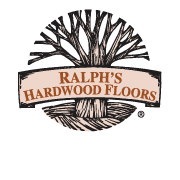If you're building a custom home, you'll have to decide on the flooring, and cost will of course be part of that choice.
If you decide on hardwood floors, many factors will influence that cost, including:
Market Demand
Due to the law of supply and demand, the more popular hardwood floors are, the more expensive they will be. It follows that a robust housing market will likely drive up the price of hardwood flooring compared to a slow market because hardwood floors are so common in homes.
Long-Term Value
Hardwood flooring retains its value longer than most other types of flooring, so you should consider that when comparing hardwood floors to other options such as carpet.
Just because it's less expensive now doesn't mean it's a better deal.
The Installer
Someone has to install the floors, so obviously you should look at how much they charge.
Don't make the mistake, however, of choosing the lowest-cost installer without considering their qualifications. Often, the installer that offers the lowest cost will ultimately cost you more due to imperfections that must be fixed—problems a more-skilled installer would have prevented.
Floor Size
Bear in mind that hardwood flooring installment is charged per square footage, so the final price depends on the size of the floor.
The Finish
The type of finish you choose is also a cost factor. As with other cost factors, the lowest upfront cost isn't necessarily the smartest choice. The quality of the finish will determine how long before you will need to pay for refinishing. It will also play a large part in how good your floors look—and that's what your paying for, after all.
If you end up with finished floors you don't enjoy and take pride in, are you really getting a bargain?
Type of Hardwood
You can use all sorts of species of wood for your flooring, and all of them have different costs.
Common domestic species such as oak, walnut, and maple are generally less expensive than exotic, foreign species such as Brazilian walnut or cherry, but the uniqueness of exotic woods makes the extra cost worthwhile to some home buyers.
Traditionally, engineered hardwood flooring has been less expensive than solid-plank hardwood floors, but advances in the quality of the best engineered hardwood have made that less of a factor.
If you’d like to explore these and other cost factors for the flooring of your dreams, contact us at 920.984.3383.















